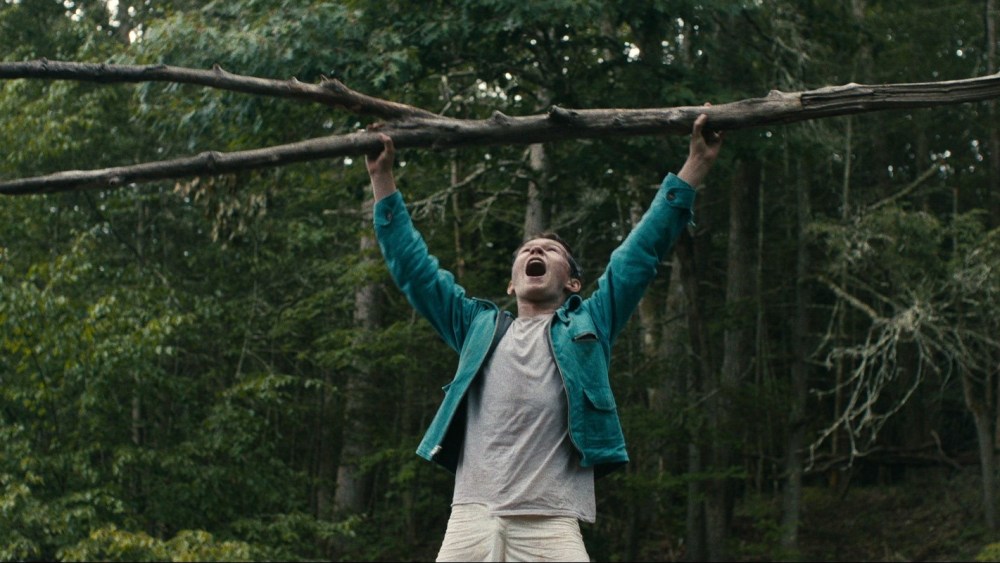‘Lost on a Mountain in Maine’ Review: A True-Life Survival Story
In the tradition of “Death of a Salesman,” “The Assassination of Trotsky” and “Penn and Teller Get Killed,” “Lost on a Mountain in Maine” arrives with an on-the-nose title that serves as fair warning: Few surprises await you here. On the other hand, there’s never any doubt that things will work out OK for Donn Fender (Luke David Blumm), the 12-year-old protagonist. Indeed, during the opening minutes of this family-friendly true-life drama, the beans aren’t merely spilled, they are tossed while director Andrew Boodhoo Kightlinger and scripter Luke Paradise (working from a same-titled memoir co-written by the real Donn Fender) give a pinky-swear promise that a happy ending looms large on the horizon.
But maybe that’s not such a bad thing: If you’re watching “Lost on a Mountain in Maine” with impressionable children, you won’t have to worry about their ever getting too terrified if they closely identify with Donn as he struggles to survive for nine days alone in the freezing wilderness of Northern Maine without food, water and suitable gear. Unless, of course, they occasionally get so caught up with the story that they forget they’ve already been told how it ends.
As for adult viewers, they may be engrossed during the sporadic stretches of middling suspense, and impressed by the striking cinematography of Idan Menin, which greatly enhances the movie’s overall impact. It helps a lot that major characters are well-cast across the board, and helps even more that young Blumm is especially adept at developing a rooting interest in his character.
That’s no small feat, considering how sulky and borderline-bratty Donn comes across in early scenes. It’s 1939 in Newport, Maine, and Donald Fendler (Paul Sparks), his demanding father, feels little or no reason to be soft on his son, or any of his other children, as the Great Depression proceeds apace. “Everything’s going to hell,” he tells his sympathetic wife, Ruth (Caitlin FitzGerald). “The world is not going to give him a break. Neither should I.”
Not surprisingly, Donn doesn’t respond warmly to his dad’s tough-love approach to parenting. And he’s downright angry when Donald, whose job keeps him away from home and family for extended periods, announces that he’ll have to cancel plans for a two-week fishing trip because — well, work beckons, and he can’t risk displeasing his boss while there’s a Depression going on.
Right from the beginning, you get the impression that Donald rarely (if ever) feels compelled to make amends when he needs to disappoint any of his kids. This time, however, he offers to take Donn and his two brothers on a brief hiking trip up nearby Mount Katahdin, the highest mountain in Maine, by way of apology before he departs.
This is a big mistake.
Donn is so surly in his resentment that, when a fast-moving storm rolls in while he, his siblings and father, and a family friend are trudging upward, the youngster defies the obvious dangers and continues onward. He’s very quickly separated from the group, and forced to wander through “100,000 acres of wilderness” that is even less forgiving than his father.
As Donn makes his way through the treacherous territory, members of his family and volunteer search parties hope for the best but expect the worst, while the boy withstands physical and psychological hardships that might cause a Green Beret to flinch. (It’s tempting to surmise that Sylvester Stallone signed on as one of the film’s producers mainly because the premise reminded him of Rambo’s rambles through the wild.)
The film is littered with recent interviews featuring some of the individuals who were involved in this misadventure, including Donn’s twin brother, who admits that, after nine days, “we were looking for a body.” And at the end, there is an effective compilation of archival footage that illustrates how that misadventure concluded, and reconciliations were affected.
But perhaps the most memorable thing about “Lost on a Mountain in Maine” is the way it teases a provocative question: Would Donn have managed to survive his time in the wilderness had his father not been such a hardass? Early on, Donald warns his son that, “Sometimes you don’t have a choice — finish your fight.” Could it be that Donn took his dad’s words to heart more fervently than either of them suspected?


